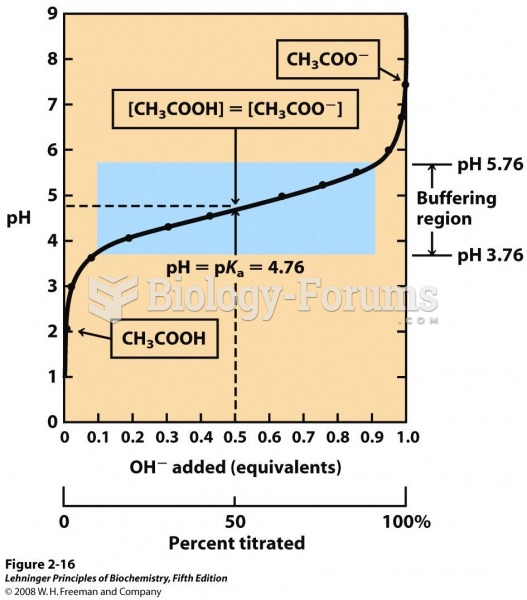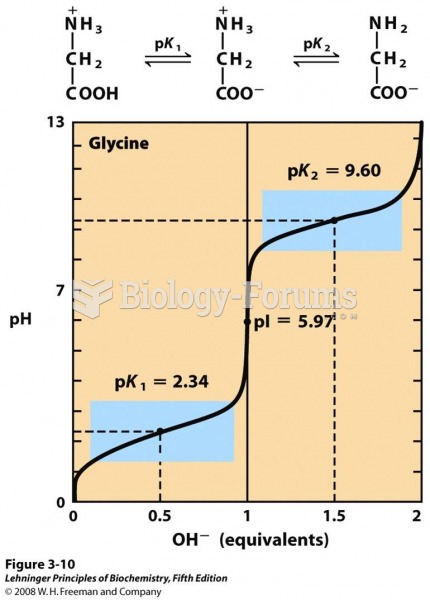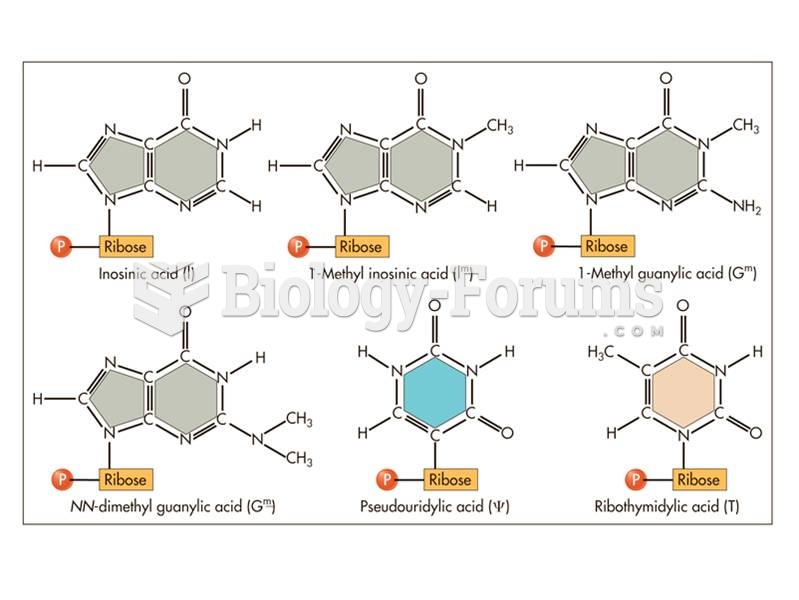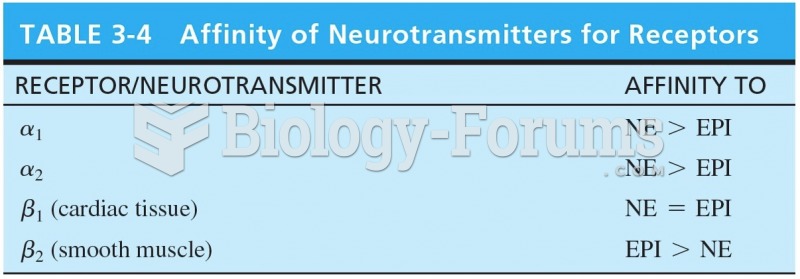|
|
|
More than 4.4billion prescriptions were dispensed within the United States in 2016.
Urine turns bright yellow if larger than normal amounts of certain substances are consumed; one of these substances is asparagus.
Glaucoma is a leading cause of blindness. As of yet, there is no cure. Everyone is at risk, and there may be no warning signs. It is six to eight times more common in African Americans than in whites. The best and most effective way to detect glaucoma is to receive a dilated eye examination.
Nearly 31 million adults in America have a total cholesterol level that is more than 240 mg per dL.
The training of an anesthesiologist typically requires four years of college, 4 years of medical school, 1 year of internship, and 3 years of residency.







